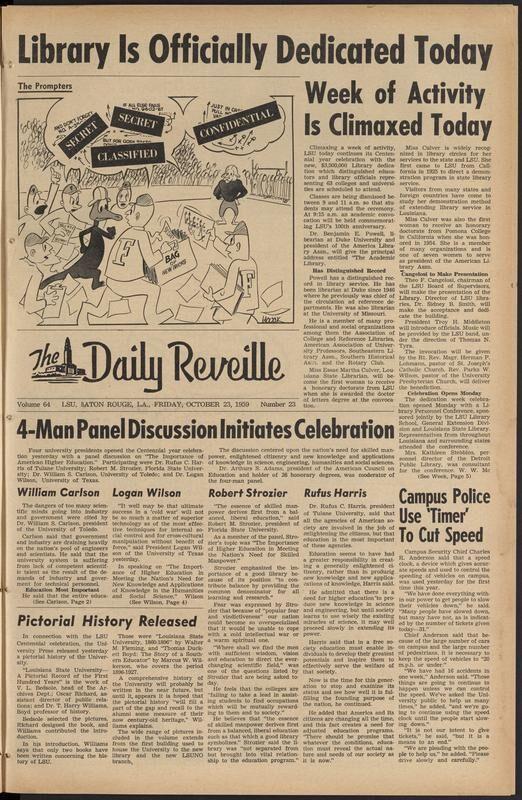LSU president F. King Alexander announced the University will accept all 28 recommendations from the Task Force on Greek Life as official University policy and added three new policies to the list to “impact the safety of Greek Life on campus.”
In a letter to the LSU community, Alexander said the timeline for implementation of these recommendations ranges from immediate to Fall 2018.
“I want to be clear about two issues: there will be full and thorough follow-up and checkpoints along the way, and there will never be a stopping point,” Alexander wrote.
In addition to the 28 recommendations from the task force, Alexander added three new policies including one which will give the University the right to “spot-check” parties and events at Greek chapters.
Alexander also said the University’s new definition of hazing will mean that any chapter found to be responsible for hazing will be immediately removed from campus, and any individuals found guilty of hazing after due process will be expelled. Alexander said this narrowed definition of hazing will allow the University to act “swiftly and appropriately.”
The last of Alexander’s additions to the Task Force recommendations involves hiring an outside firm to evaluate existing University policy and recommend additional educational programs for Greek chapters.
Alexander added that in addition to these new policies, the University will support two new pieces of state legislation. One, from Rep. Nancy Landry, R-Lafayette, who will introduce a bill making hazing a felony with harsher penalties. The other, from Rep. Franklin Foil, R-Baton Rouge, will protect the identity of any person who reports dangers behaviors such as hazing.
Executive director of policy and external affairs Jason Droddy said Rep. Foil’s legislation will protect the identity of people who report incidents to LSU and other authorities. Foil gave pre-file permission on the bill on Feb. 28.
Foil said the “dangerous behavior” referenced in the bill is not limited to hazing, but could applied to any behavior which breaks the LSU safety guidelines, such as hazing, sexual assault or drug violations. Foil said his ties to LSU and his commitment to the safety of all Louisianians inspired the bill.
“Currently, anyone who reports unsafe behavior can have their name included in the report and that would be public record,” Foil said. “If their name is public record, it can result in the reporting person to being attacked physically or subjected to bullying on social media.”
Foil said the new law would protect people who report these incidents unless the investigation finds the person has committed a criminal offense.
“Cultural change is a process, and this should be considered the first step in a marathon, not a sprint,” Alexander wrote. “We are committed to real change, and I believe our students, staff, and faculty stand behind me on that assertion.”
In the letter, Alexander thanked the family of Maxwell Gruver, the University freshman whose death as a result of hazing by Phi Delta Theta fraternity sparked the creation of the task force. After the Feb. 21 Task Force meeting, the Gruver family released a statement to express their disappointment with the Task Force’s final report.
“The Report epitomizes what happens when task forces like these are comprised of members with vested interests in perpetuating the current, fail Greek Life system,” the family said. “The end result here is a Report consisting of a lot of words aimed at crafting only the appearance of reform.”










